Alpha GPC and Cognitive Function in Body Dysmorphic Disorder
Introduction
Body Dysmorphic Disorder (BDD) is more than an issue of self-perception—it’s a neurological and emotional imbalance that affects attention, memory, and cognitive control. People with BDD often describe their mental world as exhausting: constant intrusive thoughts, hyper-focus on physical details, and mental fatigue from relentless self-analysis.
At the core of this struggle lies a problem with cognitive processing—how the brain interprets information, manages emotions, and maintains focus under stress. When these systems become overloaded, intrusive thoughts feel impossible to stop.
While therapy, mindfulness, and emotional regulation are essential for healing, nutritional neuroscience now provides a complementary approach: supporting the brain’s structure and neurotransmitter balance. One compound gaining attention for its cognitive and emotional benefits is Alpha GPC (L-Alpha Glycerylphosphorylcholine), a natural choline source known for its ability to boost memory, focus, and mental clarity.
This article explores how Alpha GPC supports brain function, why people with BDD often struggle with cognitive overload, and how this supplement may help restore mental balance and emotional regulation.
Looking for supplements for This? Click here.
The Cognitive Strain of BDD 🧠💭
BDD is not only a psychological condition—it also manifests as neurological hyperactivity. Brain imaging studies show overactivation in the visual cortex (the area responsible for processing appearance-related details) and underactivity in regions associated with self-awareness and emotional regulation, such as the prefrontal cortex.
This creates a cognitive pattern characterized by:
Over-focusing on minute details rather than seeing the whole picture
Difficulty disengaging from appearance-related thoughts
Reduced working memory capacity due to mental overload
Weakened decision-making and problem-solving under stress
As a result, daily functioning becomes cognitively expensive. Every mirror glance, photo, or social interaction can trigger an exhausting internal dialogue.
To counteract this, the brain must have optimal neurotransmitter availability—especially acetylcholine, the chemical that governs focus, learning, and the ability to shift attention.
This is where Alpha GPC enters the picture.
What Is Alpha GPC? 🧬
Alpha GPC (L-Alpha Glycerylphosphorylcholine) is a natural choline compound found in small amounts in the brain, as well as in foods like eggs, liver, and soy. It is a precursor to acetylcholine, one of the most vital neurotransmitters for learning, focus, and emotional regulation.
When you supplement with Alpha GPC, it crosses the blood-brain barrier efficiently, delivering choline directly to neurons. Once there, it boosts the synthesis of acetylcholine, leading to improved:
Attention and working memory
Cognitive processing speed
Neuroplasticity (the brain’s ability to form new connections)
Emotional control and mental clarity
These functions are often compromised in people with BDD due to stress, anxiety, and neurotransmitter depletion.
Acetylcholine: The “Focus and Awareness” Neurotransmitter ⚡
Acetylcholine is a key chemical messenger responsible for:
Sustained attention and concentration
Learning and recall
Visual-spatial awareness (how we perceive our body in space)
Mind-body coordination
Regulating anxiety and emotional arousal
In BDD, many of these areas are disrupted. For instance, distorted visual processing—where individuals focus excessively on flaws—may be linked to imbalanced acetylcholine signaling in the visual and frontal brain regions.
When acetylcholine levels drop, cognitive control weakens, and intrusive thoughts become harder to manage. By replenishing this neurotransmitter, Alpha GPC may help improve mental filtering, allowing the brain to process sensory and emotional information more calmly and accurately.
The Science Behind Alpha GPC 🧪
Alpha GPC has been studied for decades for its effects on memory, neuroprotection, and neurotransmitter support. Here’s what research reveals:
Enhances Cognitive Function:
Clinical trials show that Alpha GPC improves working memory, attention span, and learning capacity by increasing acetylcholine synthesis and receptor activity.
Supports Neuroplasticity:
Alpha GPC increases brain-derived neurotrophic factor (BDNF)—a protein that helps neurons grow and communicate more effectively. This is critical for people with BDD, where cognitive rigidity and repetitive thinking can hinder recovery.
Boosts Mitochondrial Energy:
The brain consumes vast energy to manage emotions and thoughts. Alpha GPC enhances mitochondrial function, ensuring neurons stay energized and resilient under chronic stress.
Protects Brain Cells from Stress:
Chronic anxiety and cortisol exposure damage neural membranes. Alpha GPC supports phospholipid repair, keeping brain cells flexible and healthy.
How BDD Affects Brain Chemistry and Focus 🧠⚖️
BDD is fueled by a dysregulated balance between serotonin, dopamine, and acetylcholine.
Serotonin modulates mood and self-perception.
Dopamine regulates motivation and reward.
Acetylcholine manages focus and sensory processing.
When acetylcholine levels are low, the brain has trouble filtering sensory information—it becomes “too sensitive” to detail. This hyper-focus on imperfections can make self-reflection painful and obsessive.
By enhancing acetylcholine, Alpha GPC helps the brain reintegrate information holistically, reducing visual distortions and improving emotional neutrality.
Mental Fatigue and Neurotransmitter Depletion 💤

People with BDD often experience mental exhaustion, even after minor social interactions or mirror exposures.
This happens because:
The brain’s attentional system is always “on,” scanning for flaws.
The prefrontal cortex works overtime trying to rationalize obsessive fears.
Chronic cortisol release burns through choline and other neurotransmitter precursors.
Over time, this leads to depleted acetylcholine and reduced cognitive endurance—similar to what occurs in high-stress professions or cognitive decline.
Alpha GPC helps replenish these depleted stores, offering a sustainable foundation for mental recovery.
Cognitive Benefits of Alpha GPC for BDD 🌿
Improved Focus and Attention Control
Alpha GPC strengthens the brain’s ability to sustain focus without slipping into hypervigilance. This allows individuals to redirect attention away from appearance concerns and back toward meaningful tasks.
Reduced Mental Fatigue
By improving acetylcholine availability and energy metabolism, Alpha GPC enhances mental stamina, reducing the exhaustion that often follows obsessive rumination.
Enhanced Memory and Cognitive Flexibility
BDD involves cognitive rigidity—getting stuck in repetitive mental patterns. Alpha GPC supports neuroplasticity, enabling new neural pathways and more adaptive thinking.
Emotional Regulation and Stress Adaptation
Acetylcholine interacts with the parasympathetic nervous system—the body’s “rest and digest” mode. Higher levels support calm thinking and reduce stress-induced overreactions.
Better Response to Therapy
When cognitive control improves, therapy sessions become more effective. Individuals can process insights without being overwhelmed by anxiety or self-criticism.
How Alpha GPC Supports the Mind-Body Connection 🧘
BDD often involves dissociation from the body—a sense of being detached from one’s physical self or viewing the body as an object.
Acetylcholine plays a role in body awareness and proprioception (the ability to feel where your body is in space). By improving neural communication between the brain and body, Alpha GPC may help individuals reconnect with their physical form in a healthier, more grounded way.
This doesn’t just support mental clarity—it also enhances self-compassion and embodiment, key aspects of BDD recovery.
Alpha GPC, Dopamine, and Motivation 🌟
Another benefit of Alpha GPC lies in its indirect effect on dopamine, the neurotransmitter responsible for motivation and reward.
When acetylcholine levels rise, they support dopamine signaling in key brain regions like the prefrontal cortex and striatum. For those with BDD, who often feel emotionally flat or unmotivated, this can help rekindle interest and drive—essential for staying engaged in healing practices.
Balanced dopamine and acetylcholine also improve executive functioning, allowing more rational, goal-oriented decisions instead of reactive, anxiety-driven behaviors.
Synergistic Compounds: Stack for Cognitive Support 💊
Alpha GPC works best when paired with complementary nutrients that support neurotransmitter balance and stress resilience:
L-Theanine: Promotes calm focus and enhances alpha brain waves.
Rhodiola Rosea: Combats fatigue and stabilizes mood.
Magnesium L-Threonate: Supports neural relaxation and synaptic plasticity.
B Vitamins (especially B5, B6, B12): Essential cofactors for neurotransmitter production.
Omega-3 Fatty Acids: Strengthen neuronal membranes and improve overall brain health.
Together, these create a nootropic synergy that supports both clarity and calmness—two things BDD often strips away.
Looking for supplements for This? Click here.
Typical Dosage and Usage Guidelines ⚖️
Standard Dose: 300–600 mg per day, taken in the morning or early afternoon.
Cognitive Support Dose: Up to 1,200 mg daily, split into two doses (morning and midday).
Cycle Recommendation: Can be taken daily or in 5-days-on / 2-days-off cycles for long-term use.
Tips:
Take with food containing healthy fats for better absorption.
Avoid taking too close to bedtime—it may increase alertness.
Combine with adaptogens (like ashwagandha or reishi) to balance stimulation with calm.
Safety and Potential Side Effects ⚠️
Alpha GPC is generally well-tolerated, but mild side effects can occur at high doses, including:
Headache (from excess choline conversion to acetylcholine)
Light gastrointestinal discomfort
Restlessness or vivid dreams
Contraindications:
Those on anticholinergic drugs or SSRIs should consult a physician before supplementation.
Avoid excessive caffeine, which can compete for acetylcholine receptors.
When used responsibly, Alpha GPC supports both cognitive enhancement and emotional regulation safely.
Integrating Alpha GPC with Therapy and Mindfulness 🧘
The real power of cognitive supplements lies in their integration with psychological healing. For individuals with BDD, Alpha GPC can act as a cognitive amplifier, helping therapy and mindfulness “stick.”
During Therapy:
Improved focus and memory enhance learning from CBT or Acceptance and Commitment Therapy (ACT) sessions. Patients retain insights and apply them more effectively in daily life.
In Mindfulness Practice:
Alpha GPC supports sustained attention, helping individuals remain present without drifting into intrusive thought loops.
In Creative Expression:
Since dopamine pathways are supported, many report improved creativity—allowing for emotional processing through journaling, music, or art.
By strengthening these neural pathways, Alpha GPC helps bridge the gap between awareness and embodiment—a crucial part of recovering from BDD.
The Role of Acetylcholine in Emotional Healing 🌿💛
Chronic anxiety rewires the brain to favor fast, fear-based processing over reflection. Acetylcholine reverses this pattern by promoting slower, more deliberate thinking—the foundation of emotional intelligence.
When acetylcholine activity increases, individuals can:
Recognize anxious patterns earlier
Respond instead of react
Feel more grounded during emotional triggers
Experience self-awareness without self-punishment
This is particularly transformative for people with BDD, who often equate self-awareness with self-criticism.
Combining Alpha GPC with Lifestyle Changes 🌞
To maximize the cognitive and emotional benefits of Alpha GPC, combine it with daily practices that support brain health and nervous system balance:
Nutrition:
Eat choline-rich foods like eggs, salmon, and broccoli.
Stay hydrated—dehydration reduces cognitive efficiency.
Limit processed sugar and alcohol, which deplete neurotransmitters.
Sleep:
Prioritize 7–9 hours of quality rest; acetylcholine is restored during REM sleep.
Movement:
Gentle exercise increases BDNF and dopamine, synergizing with Alpha GPC’s effects.
Breathwork:
Slow, diaphragmatic breathing boosts acetylcholine via vagal activation.
These habits reinforce the supplement’s effects, turning short-term focus boosts into long-term brain resilience.
Want to try Breathwork? Click Here.
Alpha GPC and Neuroplastic Healing 🌱
The ultimate goal of recovery from BDD is rewiring the brain—shifting from fear-based, detail-obsessed circuits to balanced, self-compassionate ones.
Alpha GPC plays a role in this neuroplastic process by:
Increasing acetylcholine and phospholipid synthesis for stronger neural connections.
Supporting BDNF expression, which enhances adaptability and emotional learning.
Improving the integration of emotional and rational processing between brain regions.
Over time, this can lead to real cognitive change: intrusive thoughts become less sticky, self-perception becomes more balanced, and the mind feels clearer and more resilient.
Final Thoughts: Clarity as the Gateway to Healing 🌿🧠
Body Dysmorphic Disorder traps the mind in endless loops of self-analysis and doubt. Breaking free requires more than willpower—it requires rebuilding the neurochemical foundation of focus, balance, and self-regulation.
Alpha GPC offers gentle, evidence-based support for this process. By enhancing acetylcholine, improving neuroplasticity, and strengthening brain energy, it helps restore clarity to a system overwhelmed by noise.
When combined with therapy, mindfulness, and emotional self-care, Alpha GPC becomes more than a supplement—it becomes a cognitive ally, helping individuals think clearly enough to heal deeply.
Because recovery begins not with changing how you look, but with changing how your mind allows you to see. 💛
Looking for online therapy ? Click Here.
References 📚
Cappa, S., et al. (1996). Effects of L-alpha glycerylphosphorylcholine on cognitive recovery in stroke patients. Journal of Neurology Sciences.
Sigala, S., et al. (1992). Alpha GPC enhances acetylcholine release and cognitive function in humans. Clinical Therapeutics.
Parnetti, L., et al. (2001). Choline precursors and brain function in the aging process. Neurochemistry International.
Pepeu, G., & Giovannini, M. G. (2010). Acetylcholine and cognition: A long-lasting relationship. Behavioural Brain Research.
Zanardi, A., et al. (2014). Alpha-GPC and neuroplasticity: Implications for cognitive enhancement and neuroprotection. Frontiers in Pharmacology.
Cassella, J. P., et al. (1999). Cognitive enhancement and cholinergic modulation under stress. Pharmacology Biochemistry and Behavior.
Phillips, K. A. (2005). The Broken Mirror: Understanding and Treating Body Dysmorphic Disorder. Oxford University Press.
Haense, C., et al. (2008). Choline supplementation and improved synaptic communication in mood disorders. Neuroscience Letters.
Wurtman, R. J., & Cansev, M. (2011). Nutritional approaches to brain health: Role of choline and phospholipids. Nature Reviews Neuroscience.
Morley, J. E., et al. (2018). Neurocognitive benefits of Alpha-GPC supplementation: A review. Aging Clinical and Experimental Research.
Related Posts
-

Why Co-Dependency Feels Draining: Adrenal Fatigue and Supplements That Help
The adrenal glands are small but powerful organs that sit above your kidneys, acting as your body’s built-in stress managers. They produce hormones like cortisol and adrenaline that help regulate energy, mood, and resilience. When they’re overworked from chronic stress or emotional exhaustion, fatigue and imbalance follow. Supporting adrenal health naturally can help restore calm, energy, and hormonal balance. 🌿⚡
-

The Link Between Anxiety, Co-Dependency, and Natural Support
Anxiety feels like living in constant alert mode—your heart races, your thoughts loop, and your body can’t find peace. It’s the nervous system’s way of preparing for danger, even when none exists. Understanding what’s happening in your mind and body is the first step toward calming the storm and restoring balance. 🌿💫
-

Supplements That Support Dopamine and Serotonin in Co-Dependent Patterns
Serotonin is the neurotransmitter of calm, confidence, and contentment. When it’s balanced, you feel peaceful and emotionally grounded. When it’s low, anxiety, mood swings, and emotional dependence take over. By understanding serotonin’s role in emotional health—and how to support it naturally—you can rebuild inner stability, improve relationships, and cultivate lasting happiness from within. 🌞💫
-

How Emotional Exhaustion in Codependency Impacts the Nervous System
The nervous system is the body’s communication network, connecting the brain to every organ and muscle. It regulates stress, mood, and emotion through a delicate balance of electrical and chemical signals. When overwhelmed, it can become dysregulated—leading to fatigue, anxiety, and emotional imbalance. Understanding how to calm and strengthen the nervous system is key to healing from chronic stress and emotional burnout. ⚡🌿
-

What Is Co-Dependency? The Role of Brain Chemistry and Stress
Stress is more than a feeling—it’s a full-body experience that begins in the brain and ripples through every cell. When cortisol surges and the nervous system stays on alert, your body can’t rest or recover. Over time, this constant tension affects energy, focus, mood, and even immune health. Understanding stress chemistry is the first step toward breaking free from burnout and finding calm again. 🌿
-

Creating a Supplement Stack for Motivation, Energy, and Anti-Procrastination
Motivation is the fuel behind every meaningful achievement—but it’s not just about willpower. It’s a mix of mindset, brain chemistry, and momentum. When energy, focus, and purpose align, action feels natural instead of forced. Learn how to harness motivation as a daily state, not a fleeting feeling.
-

Supplements for Building Consistency and Reducing Chronic Procrastination
Biochemistry is the bridge between biology and chemistry—the science of life at the molecular level. It explains how nutrients, hormones, and neurotransmitters interact to create energy, thought, and emotion. From brain function to muscle movement, biochemistry reveals the invisible processes that sustain health, balance, and vitality.
-

GABA and Procrastination: Supporting Calm Focus for Productivity
GABA is the brain’s natural calming messenger—a neurotransmitter that helps slow mental overactivity and ease stress. When GABA levels drop, focus fades, anxiety rises, and procrastination becomes more likely. By supporting GABA through nutrition, lifestyle, and supplements, you can restore calm clarity, improve focus, and take action with steady, balanced energy.
-

Ashwagandha and Procrastination: Lowering Stress to Improve Action
Science is the language of curiosity and discovery. It helps us understand the hidden patterns behind life, energy, and the universe. Through experimentation and critical thinking, science connects imagination to evidence—turning questions into knowledge. Whether through microscopes, molecules, or minds at work, science represents our endless pursuit of truth and innovation.
-

Neurotransmitters and Motivation: Supplements That Support Drive and Focus
Supplements can do more than boost physical health—they can also enhance mental clarity, focus, and motivation. Nutrients like omega-3s, magnesium, B vitamins, and adaptogens help balance neurotransmitters, stabilize mood, and support brain energy. When combined with good sleep, nutrition, and mindful habits, they can transform how your brain performs under stress.
-

How Stress Hormones Like Cortisol Fuel Procrastination (and What Helps)
Blood sugar isn’t just about physical health—it directly impacts focus, mood, and motivation. When glucose levels spike and crash, energy and attention do the same, fueling procrastination and brain fog. Learning how to stabilize blood sugar through balanced meals, mindful habits, and key nutrients helps keep your mind steady, focused, and ready to act.
-

Brain Fog and Procrastination: Supplements for Mental Clarity
Brain fog can turn even simple tasks into mental hurdles. When your thoughts feel slow and unclear, procrastination often follows—making focus and productivity seem impossible. This article explores the biochemical and lifestyle causes of brain fog and reveals the most effective supplements for restoring mental clarity, focus, and sustained energy.
-

The Link Between Low Energy and Procrastination: Can Supplements Help?
Neurochemistry shapes how we think, feel, and act. When neurotransmitters like dopamine, serotonin, and GABA fall out of balance, it can lead to fatigue, anxiety, or lack of motivation—fueling procrastination and low mood. Understanding the brain’s chemical communication system helps us find ways to restore focus, calm, and emotional stability through nutrition, mindfulness, and targeted supplements.
-

Why Do We Procrastinate? The Role of Dopamine and Supplements That Support It
Dopamine is the brain’s motivation messenger—the chemical that fuels focus, reward, and drive. When dopamine levels drop, even simple tasks can feel impossible to start. This article explores how dopamine shapes procrastination, motivation, and mental energy, along with natural supplements and daily habits that help restore balance and get things done.
-

Phosphatidylserine and Stress Reduction for People with BDD
Stress is more than a mental state—it’s a full-body experience that affects hormones, brain chemistry, and emotional balance. For people with Body Dysmorphic Disorder (BDD), constant tension and worry about appearance can overload the nervous system. Learning how stress works and finding ways to calm it is key to breaking the cycle of anxiety and self-criticism.
-

How Antioxidants Like Vitamin C & E Support Mental Health in BDD
Antioxidants are the body’s natural defense against stress and inflammation. For people with Body Dysmorphic Disorder (BDD), oxidative stress can worsen fatigue, anxiety, and emotional imbalance. Nutrients like Vitamin C and E help protect brain cells, boost neurotransmitter function, and support a calmer, clearer mindset—building a stronger foundation for recovery.
-

Ginkgo Biloba and Memory Support for BDD Recovery
Emotional regulation is the foundation of healing from Body Dysmorphic Disorder (BDD). When the nervous system stays in constant overdrive, even small stressors can trigger self-critical spirals. Learning to calm emotional reactivity helps restore clarity, confidence, and a sense of inner balance. By blending mindfulness, nervous system support, and self-compassion, you can retrain your brain to respond—not react—to emotion.
-

N-Acetyl L-Tyrosine and BDD: Supporting Mental Clarity
Chronic stress doesn’t just affect your mood—it reshapes your brain chemistry, weakens focus, and fuels the obsessive thought loops common in Body Dysmorphic Disorder (BDD). Over time, constant cortisol elevation drains mental energy and emotional balance. Learning to recognize and manage chronic stress is essential to restoring mental clarity, self-compassion, and resilience.
-

Chamomile and Lavender for Calming Obsessive Body Image Thoughts
The nervous system is the command center of our emotional and physical world—and in Body Dysmorphic Disorder (BDD), it often operates in overdrive. Understanding how the brain and body communicate under stress reveals why intrusive thoughts feel uncontrollable. Learning to regulate the nervous system through calm practices, nutrition, and supplements helps restore inner balance and emotional safety.
-

Adaptogens for Body Dysmorphic Disorder: Rhodiola, Ginseng, and More
Rhodiola rosea, often called the “golden root,” is an adaptogenic herb renowned for boosting stress resilience and mental endurance. For individuals with Body Dysmorphic Disorder (BDD), Rhodiola may help reduce fatigue, regulate cortisol, and enhance emotional balance. By supporting both mind and body, this powerful plant promotes calm focus, improved mood, and renewed energy to face daily challenges.
-

B Vitamins for Stress Resilience in BDD: Rebuilding Calm from Within
Biochemistry is at the heart of every thought, emotion, and reaction we experience. In Body Dysmorphic Disorder (BDD), chemical imbalances in neurotransmitters like serotonin, dopamine, and GABA can amplify stress and distort self-perception. Understanding the biochemistry behind mood and stress regulation offers a path toward healing—bridging the gap between emotional experience and the body’s molecular balance.
-

Melatonin and Body Dysmorphic Disorder: Restoring Healthy Sleep Patterns
Melatonin, the body’s natural sleep hormone, plays a vital role in helping people with Body Dysmorphic Disorder (BDD) restore healthy sleep cycles. When anxiety and obsessive thinking interfere with rest, melatonin levels often drop, leading to more emotional reactivity and distorted self-perception. This article explores how melatonin works, why BDD disrupts it, and how natural supplementation—combined with mindful routines—can help the brain and body finally find calm at night.
-

Sleep Struggles with BDD: Supplements for Rest and Recovery
When you’re living with Body Dysmorphic Disorder (BDD), restful sleep can feel impossible—but the right supplements can help reset your body’s natural rhythm. From magnesium and L-theanine to 5-HTP and ashwagandha, these nutrients support relaxation, lower cortisol, and enhance melatonin production. This article explores how supplements can calm the mind, ease nighttime anxiety, and promote true restorative sleep for emotional and physical recovery.
-

5-HTP and Serotonin Balance: Could It Help with Body Dysmorphic Disorder?
Anxiety can feel like a storm inside the mind—restless, overwhelming, and hard to control. In people with Body Dysmorphic Disorder (BDD), anxiety often fuels obsessive thoughts and self-criticism, creating a painful cycle of worry and self-doubt. This article explores the biological roots of anxiety, the role of neurotransmitters like serotonin and GABA, and how natural strategies such as mindfulness, supplements, and nervous system regulation can restore calm and mental clarity.
-

Can Ashwagandha Help Ease Stress and Anxiety in Body Dysmorphic Disorder?
Neurotransmitters like serotonin, dopamine, GABA, and acetylcholine are the chemical messengers that shape how we think, feel, and react to stress. In Body Dysmorphic Disorder (BDD), imbalances in these neurotransmitters can amplify anxiety, obsessive thinking, and emotional distress. This article explores how restoring healthy brain chemistry through nutrition, supplements, and mindfulness can help bring clarity, calm, and emotional stability.
-

L-Theanine for BDD: Finding Calm in the Mind
Neurochemistry plays a central role in how we think, feel, and see ourselves. For those living with Body Dysmorphic Disorder (BDD), imbalances in neurotransmitters like serotonin, dopamine, and GABA can intensify anxiety, obsessive thoughts, and emotional distress. This article explores how regulating brain chemistry through supplements, mindfulness, and lifestyle changes can bring the nervous system back into harmony and restore inner calm.
-

Omega-3 Fatty Acids and Body Image Disorders: Supporting Emotional Health
Omega-3 fatty acids do far more than support heart health—they nourish the brain, stabilize mood, and may ease the emotional turbulence tied to body image disorders like BDD. This in-depth article explores how omega-3s regulate serotonin, dopamine, and inflammation, helping individuals reduce obsessive thoughts and rebuild self-acceptance. It also connects nutrition to therapy, mindfulness, and nervous system balance for holistic emotional healing.
-

Magnesium and BDD: Calming an Overactive Nervous System
Magnesium plays a crucial role in calming an overactive nervous system—something people with Body Dysmorphic Disorder (BDD) struggle with daily. This article explores how magnesium supports relaxation, emotional regulation, and stress reduction while diving into the science behind its connection to brain chemistry. It also examines how combining magnesium supplementation with therapy and breathwork can help rebalance the body’s stress response, reduce obsessive thought patterns, and promote lasting nervous system calm.
-

The Gut-Brain Axis and BDD: Why Probiotics Might Matter
The gut and brain are constantly in conversation — and that dialogue may shape how you experience Body Dysmorphic Disorder. By nurturing your microbiome with probiotics, prebiotics, and gut-healing nutrients, you can help rebalance serotonin, calm anxiety, and restore emotional stability from within 🧠🦠.
-
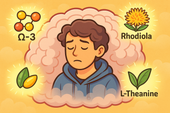
Brain Fog and Body Dysmorphic Disorder: Can Nootropic Supplements Help?
Brain fog often accompanies Body Dysmorphic Disorder, clouding focus and deepening emotional fatigue. Nootropic supplements like L-theanine, Rhodiola, and CoQ10 can help restore mental clarity, balance neurotransmitters, and bring calm energy back to the mind 🌿🧠.
-

How Stress Hormones Like Cortisol May Worsen Body Dysmorphic Disorder
Chronic stress floods the brain with cortisol — the hormone that keeps you on high alert. In Body Dysmorphic Disorder, this chemical overdrive fuels anxiety, distorts self-image, and traps the body in survival mode. Calming cortisol helps restore both peace and perspective 🌿🧠.
-

The Role of Neurotransmitters in BDD—and How Supplements May Help
Neurotransmitters like serotonin, dopamine, glutamate, and GABA shape how people with Body Dysmorphic Disorder perceive themselves. When these brain messengers fall out of balance, perception distorts — but targeted supplements can help restore calm, focus, and emotional regulation 🧠🌿.
-

What Is Body Dysmorphic Disorder? A Deeper Look at the Mind-Body Connection
Body Dysmorphic Disorder (BDD) isn’t just about appearance — it’s about perception. When brain chemistry, trauma, and stress distort self-image, the mind begins to see flaws that aren’t truly there. Healing starts by calming the nervous system and reconnecting mind and body 🪞🧠.
-

Keeping Calm in Competitive Sports: How to Train Your Mind, Body, and Chemistry for Peak Performance
Competitive pressure can overwhelm even the strongest athletes — but calm is trainable. By combining supplements like magnesium, L-theanine, and adaptogens with breathwork and mindset training, you can stay focused, balanced, and in control under any level of stress 🧠🏅.
-

Supplements for Parents Facing Toddler Tantrums: Staying Calm When Little Emotions Run Wild
Toddler tantrums can drain even the most loving parent — but your calm is powerful. With the right supplements like magnesium, L-theanine, and ashwagandha supporting your nervous system, you can stay patient, grounded, and kind, even when emotions run high 🧸🌿.
-

Workplace Stress and Anger Management Support
Workplace stress can quickly turn into frustration — but calm is a skill you can train. By combining supplements like magnesium, L-theanine, and adaptogens with breathwork and mindset tools, you can stay focused, patient, and emotionally grounded no matter how intense the office gets 💼🌿.
-

How to Stay Patient With Family During Stressful Holidays
Holiday gatherings can stir up old stress and test your patience — but calm is possible. With nervous system support from magnesium, L-theanine, and adaptogens, plus mindful breathing and clear boundaries, you can stay centered, kind, and grounded even when family chaos unfolds 🎄💞.
-

Supplements to Keep Calm During Traffic Jams
Getting stuck in traffic doesn’t have to ruin your mood. With calming supplements like magnesium, L-theanine, and ashwagandha, you can train your body to stay relaxed and focused behind the wheel — turning gridlock into a moment of grounded patience 🚗🌿.
-
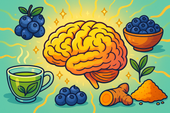
The Role of Antioxidants in Healing Brain Stress from Dissociation
Antioxidants protect the brain from the oxidative stress caused by trauma and dissociation. By neutralizing free radicals and supporting mitochondrial recovery, they help restore clarity, focus, and emotional balance — allowing the mind to heal at the cellular level 🌿🧠.
-
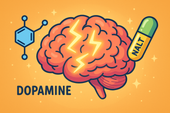
N-Acetyl L-Tyrosine (NALT) for Supporting Mental Clarity
N-Acetyl L-Tyrosine (NALT) fuels dopamine production — the neurotransmitter of focus and motivation. By supporting brain chemistry during stress, NALT helps restore mental clarity, energy, and alertness, making it easier to think clearly and feel present again ⚡🧠.
-

How Ginseng May Improve Focus and Energy in Dissociation
Ginseng helps combat the mental fatigue and fog that often come with dissociation. By supporting mitochondrial energy, balancing neurotransmitters, and regulating cortisol, it gently restores focus, motivation, and emotional presence — helping the mind reconnect with clarity and strength 🌿⚡.
-
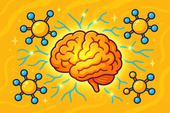
Phosphatidylserine and Dissociation: Supporting Cognitive Function
Phosphatidylserine helps calm the stress response by balancing cortisol, the body’s primary stress hormone. By lowering cortisol spikes, it protects memory, focus, and emotional stability — restoring clarity and mental presence for those struggling with dissociation 🧠🌿.
-
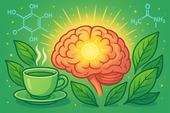
Can Green Tea Extract Help with Dissociative Brain Fog?
Green tea extract may help lift dissociative brain fog by supporting neurotransmitter balance, reducing inflammation, and enhancing energy at the cellular level. With its key compounds EGCG and L-theanine, it promotes calm focus, clarity, and emotional presence — helping you feel more alert and grounded 🍵🧠.
-
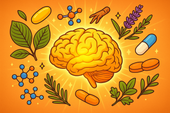
Building a Natural Supplement Stack for Dissociation Support
Building a supplement stack for dissociation means nourishing the brain and body back into communication. By supporting neurotransmitters, gut health, and energy balance through nutrients like magnesium, omega-3s, curcumin, and probiotics, you can help restore clarity, calm, and connection — one layer at a time 🌿🧠.
-

Chamomile and Lavender for Dissociative Anxiety Relief
Chamomile and lavender work together to calm dissociative anxiety by soothing the nervous system and restoring emotional safety. Their natural compounds balance cortisol, enhance GABA activity, and activate the vagus nerve — helping you feel grounded, connected, and at peace again 🌿💜.
-
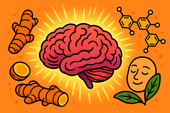
Curcumin for Inflammation and Mental Clarity in Dissociation
Curcumin, the golden compound in turmeric, does more than fight inflammation — it helps clear the mental fog often tied to dissociation. By calming neuroinflammation, balancing neurotransmitters, and supporting mitochondrial energy, curcumin can restore mental clarity, focus, and emotional presence 🌿🧠.
-
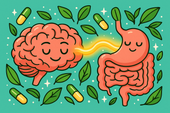
Probiotics and Dissociation: Exploring the Gut–Brain Axis
The gut–brain axis plays a vital role in emotional awareness and presence. When the microbiome is balanced, it supports serotonin production, vagus nerve activity, and calm focus. Probiotics help repair this connection — restoring safety, clarity, and the feeling of truly being in your body again 🌿🧠.
-
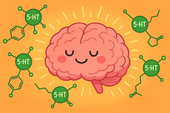
5-HTP for Dissociation: Supporting Serotonin and Emotional Stability
5-HTP helps bridge the gap between emotional numbness and stability by supporting serotonin production — the neurotransmitter that shapes mood, sleep, and sensory awareness. For people experiencing dissociation, 5-HTP may gently restore connection, presence, and emotional balance from the inside out 🌿🧠.
-
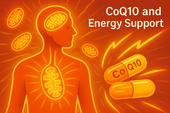
CoQ10 and Energy Support for People with Dissociation
Chronic dissociation often leaves the body running on empty — tired, foggy, and disconnected. CoQ10 helps recharge that system at the cellular level by restoring mitochondrial energy, reducing oxidative stress, and supporting the brain’s capacity to stay present. It’s energy medicine for both body and mind ⚡🧠.

















































